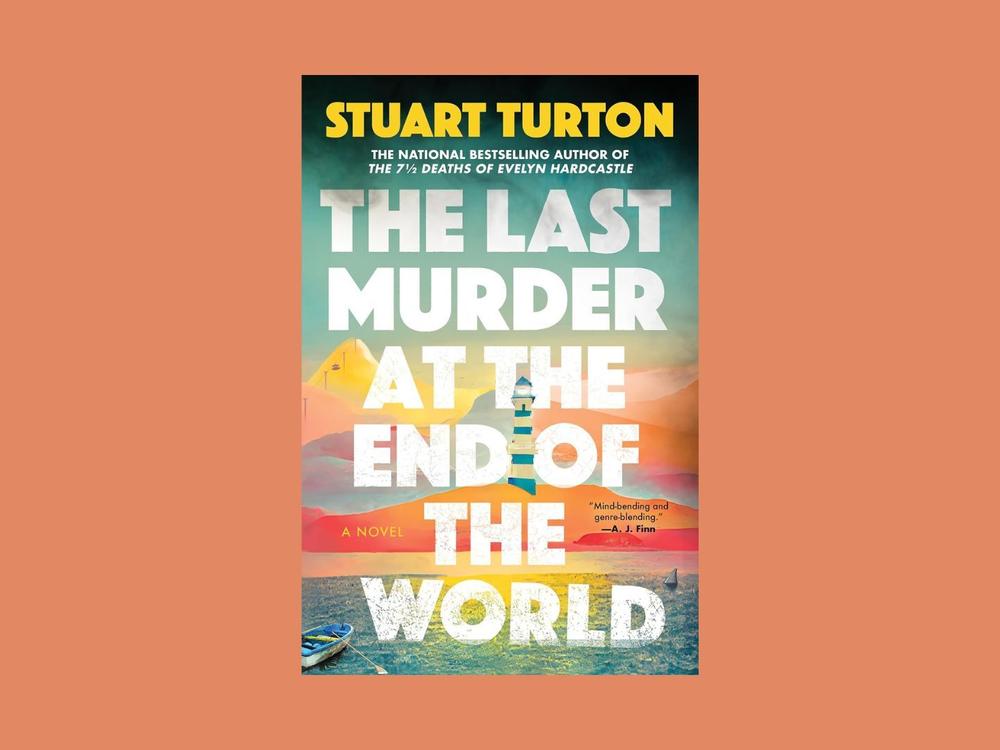Section Branding
Header Content
'The Last Murder at the End of the World' is a story of survival and memory
Primary Content
Stuart Turton's The Last Murder at the End of the World is a wild amalgamation of genre elements that pulls readers into a unique postapocalyptic world in which another end is imminent. Told with surprising speed, given its depth and scope, this bizarre whodunit also works as a science fiction allegory full of mystery that contemplates the end of the world and what it means to be human.
After a deadly fog destroyed the world and killed most of humanity 90 years ago, the few remaining survivors established themselves on a small Greek island and began salvaging whatever they could. Now, 122 villagers and three scientists share life on the island, working the land, taking care of each other, and respecting a strange set of rules and a curfew that makes them all go to bed and wake up at the same time. They also share an AI voice that lives inside their head and operates like their conscience.
Outside the island, the same deadly fog that ended the world still exists, and it sometimes comes on land, which makes it a constant threat. When one of the scientists is murdered, the islanders lose the only protection they had against the fog. If they don't solve the murder soon, the fog will cover the island and kill everyone. Unfortunately, the same security system failure that could allow the fog to take over the island has also erased everyone's memories of what happened during the night before. This means that no one remembers seeing anything -- and that maybe even the person who committed the murder might not remember they did it.
The Last Murder at the End of the World works well, and it does so on two different levels. Right at the surface, this is a wonderful hybrid that blends postapocalyptic science fiction with a murder mystery. The elements of those genres never overpower each other. In fact, they complement each other and help Turton redefine the whodunit. The science fiction elements -- the end of the world, the AI inside everyone's head, the gems that can contain a person's memories, the way people can buy memories to experience things -- are interesting and make the narrative more engaging, while also placing the novel comfortably in the terrain of smart speculative fiction. Meanwhile, the murder mystery occupies center stage in a story where new revelations are always around the corner and where nothing is exactly at it seems.
While genre elements are right at the surface here, The Last Murder at the End of the World is also a deep novel about big ideas. Turton delves deep into the way humans tend to fight each other, for example. He also addresses the end of the world obliquely, with only short descriptions of how it happened and a few details about how some of the characters who were part of the original group of survivors fared after the fog killed almost everyone. Also, the narrative deals a lot with control -- who possesses it and why and how it often comes accompanied by some kind of dishonesty. The plethora of ideas Turton plays with makes this a wonderfully layered story that's about much more than a mysterious murder no one can remember.
Trekking into uncharted territory is always tricky, and that means narratives that do so might have slight flaws from their perilous journeys. In the case of The Last Murder at the End of the World, there are only two small blemishes, which isn't much when considering everything Turton accomplishes with the novel. The first one is that the large cast of characters prevented Turton from giving them all the same level of character development. The second is that despite short chapters and dialogue that carries the action well, the pacing isn't constant and the telling feels a tad mechanical in some passages, probably because of everything that's going on in the story, and the need to push things forward at all times while also engaging with big ideas.
The Last Murder at the End of the World is a gripping tale that reads like a Sherlock Holmes novel set in a broken future. This is a novel that explores what makes us human but that does so with characters that aren't all human and with a narrator that is an artificial intelligence that may or may not know more about the future than everyone else. Turton is an exciting writer with a knack for strange tales that push the envelope, and this strange story of murder, survival, and the importance of memory might be his best work yet.
Gabino Iglesias is an author, book reviewer and professor living in Austin, Texas. Find him on X, formerly Twitter, at @Gabino_Iglesias.

